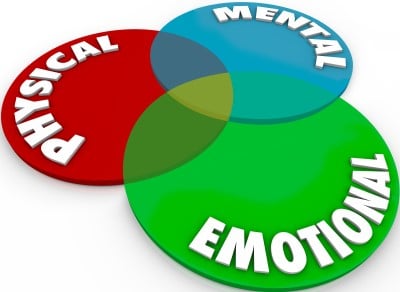
Can sleep counseling help with sleep apnea? – Why it can and how to get started
By Jason Wooden, PhD and Kristal McKinney, LICSW, CMHS | December 9, 2020
Sleep counseling is one of the most effective treatments for insomnia. Stress, anxiety, and depression are common causes for poor sleep.
Sleep counseling can help identify and change thoughts and behaviors that affect sleep. Evidence is growing that it can make a difference for sleep apnea patients.
It can help you manage stress, anxiety, and depression that may be worsening your sleep and aggravating your sleep apnea.
Why sleep counseling for sleep apnea is really worth a look!
If you’re frustrated and wondering whether sleep counseling can help your sleep apnea, it’s no surprise.
Anything that might give some relief is worth a try since sleep apnea can make for horrible nights and miserable days.
It’s a common sleep disorder in which breathing stops or gets more shallow during sleep. These interruptions can last anywhere from a few seconds to minutes and may occur 30 times or more in hour in some individuals!
As the brain and body becomes oxygen deprived, normal sleep cycles are disturbed as you fall out of restorative deep sleep into light sleep. The result is that you wake up feeling unrested even if you’ve slept for 8 hours.
Did you know most people with sleep apnea aren’t aware all of this is happening while they sleep? They wonder why they’re waking up throughout night and then feel like a zombie during the day.
All the same, it’s a major sleep killer making life miserable for over 18 million adults in the US and nearly a billion worldwide.
Let’s not forget how high the stakes are since untreated sleep apnea has been linked to high blood pressure, heart disease, stroke, diabetes, and depression.
Unfortunately, when it comes to poor sleep, it’s seldom just one thing going wrong. There are so many different things that can affect sleep, mental and physical.
There’s what’s going in your environment, body, and head.
So, yes, sleep apnea patients have a breathing issue. However, they also likely have things happening on the mental side that can cause sleep problems and worsen their sleep apnea.
You really have to consider mind AND body.
Let’s take a closer look at some these mind issues and how sleep counseling can help with getting your sleep apnea under control so you get your life back

The mind-body connection for sleep
Before we get to how sleep counseling can help sleep apnea, we need to look at the mind-body connection.
Your mind, brain, behaviors, and body can interact in powerful ways that affect health and wellness.
Today, mind-body medicine approaches are being used to help with chronic pain, headaches, and many other common conditions.
Did you know that stress and anxiety are among the most common causes of poor sleep?
Occasional stress and anxiousness is a normal thing. It’s when it keeps happening and at the wrong time you can really get in trouble.
We all know from personal experience how hard it is to fall asleep with a racing mind.
As you get more and more stressed out, your body may turn on the fight-or-flight response and pump out stress hormones designed to get you in a heightened state of arousal.
That’s why stress and anxiety is so bad at night – they make it harder to fall asleep AND harder to stay asleep throughout the night.
Unfortunately, stress can aggravate any other sleep issues such as chronic pain, a serious sleep wrecker by itself.
What’s worse is as you stress out more and more about falling asleep you can get a sleep anxiety that feeds back on everything else.
Depression is also connected to poor sleep. Many people who fight depression also struggle with insomnia.
According to studies, people with insomnia are likely to develop major depression associated with sleep problems.
It turns out that people who sleep poorly are more at risk for stress, anxiety, and depression. If you’re not careful, you can get in a vicious cycle where mental issues leads to more poor sleep and poor sleep leads to more health struggles.
So, you can see there’s a strong mind-body link to sleep.

The mind-body connection is important for sleep apnea too
Now that you know about the mind-body connection for sleep, it shouldn’t surprise you that it’s just as important for sleep apnea too.
Just like sleep, there’s lots of different things that make things worse for sleep apnea patients.
What’s going on in your head can have a big impact.
For starters, you’re already sleeping poorly because of the breathing interruptions. Any stress or anxiety you have will pile onto things making it harder to fall asleep and stay asleep.
In fact, research has shown that sleep apnea patients are more at risk for anxiety.
Did you know ongoing stress can lead to excessive inflammation in the body? Since sleep apnea has now been connected to inflammation, the stress and anxiety may aggravate your symptoms.
Finally, if you’re feeling depressed, it can also worsen your sleep. And, unfortunately, people with sleep apnea have been found to be more at risk for depression.
So, you can see how things going on in the mind can make it harder to sleep, aggravate your sleep apnea, and add to the misery.
This is where sleep counseling for sleep apnea can help.

How sleep counseling can help with sleep apnea
The most commonly used type of counseling for insomnia is cognitive behavioral therapy (CBT-i for short). It can be help identify and change thoughts and behaviors that affect sleep.
Too often, people develop bad attitudes, habits, and associations that make it harder to sleep. The support sleep counselors give is individualized to your specific situation
CBT-i can also help with any stress, anxiety, and depression issues you’re dealing with that’s making things worse.
It can help keep you from getting to a downward spiral of poor sleep and more stress, anxiety, and depression.
And if you’re less stressed, it may mean less inflammation in the body which can help keep your sleep apnea symptoms under control.
Finally, CBT-i counseling can involve various techniques to help you develop healthier ways of thinking and habits:
Stimulus control – helps you have a more positive response to your bed at night
Sleep restriction – matches the time you spend in bed to how long you sleep
Relaxation training – teaches you how to prepare your mind and body for sleep
Biofeedback – uses sensors to help you recognize and manage the effects of stress and anxiety
Sleep hygiene training – helps you change daily habits that affect sleep
Nonetheless, that’s how sleep counseling can help with sleep apnea and improve your nights.

New research shows sleep counseling can really help with sleep apnea
If you’re curious about the science behind this mind-body approach, the evidence is growing for the usefulness of sleep counseling for sleep apnea patients.
In a recent study involving 145 people with untreated obstructive sleep apnea, patients were enrolled in sleep counseling before starting CPAP.
(CPAP is the most common and effective treatment for sleep apnea.)
Patients who received CBT-i had fewer awakenings.
Another plus is that were more likely to stick it out with their CPAP treatment.
Some people get really anxious over CPAP. They have a hard time with the mask, blowing air, and the vibrating noise from the machine.
Because of this, too many people abandon CPAP within the first year which is a bummer since it can be life changing.
Altogether, this means CBT counseling really is useful for sleep apnea patients since it can help with fight stress and anxiety, improve their sleep apnea symptoms, and they’re more likely to continue their CPAP treatment.

How to find a sleep counselor
Okay, now that you know what sleep counseling can do for your sleep apnea, you’re probably wondering how to get started.
You can check an online listing:
Find a Sleep or Insomnia Therapist (PsychologyToday.com)
Association for Behavioral and Cognitive Therapies directory
Society of Behavioral Sleep Medicine directory
You can also ask your doctor or sleep specialist about sleep therapists.
Some things to look for:
- credentials
- licensing
- experience
- insurance
- check for complaints filed against a therapist
- fees
- free initial consultation where you can test the waters
These days you can get help online from the comfort of your home by videoconferencing with your therapist.
You may also be interested in:
How to find an online sleep coach
5 things to know about cognitive behavorial therapy (CBT) counseling
Can counseling for sleep disorders really help?
Can sleep counseling help with sleep apnea?
The POWERFUL Connection Between Mood, Depression, and Sleep
Can sleep apnea cause bipolar?
Can losing weight help sleep apnea?
Tips for finding an online sleep counselor
Sleep help and counseling for couples: Hope for better nights
PODCAST: Sleep, Stress and the Science of the Mind-Body Connection: Interview with Whitney McKnight
Can sleep apnea really cause IBS?
Can acupuncture help sleep apnea?
Sources:
1. “Sleep Apnea Information for Clinicians”, American Sleep Apnea Association website
2. Estimation of the global prevalence and burden of obstructive sleep apnoea: a literature-based analysis, Lancet Respir Med. 2019 Aug; 7(8): 687–698.
3. Mind-body medicine. An introduction and review of the literature, Med Clin North Am. 2002 Jan;86(1):11-31.
4. “Depression and Sleep”, SleepFoundation.org
5. “Insomnia: The Mind, Body, and Emotion Connection”, American Sleep Association website
6. “Why Psychologists are Starting to Care About Sleep Apnea”, Psych Central
7. “How stress influences disease: Study reveals inflammation as the culprit”, ScienceDaily website
8. Upper airway and systemic inflammation in obstructive sleep apnoea. Eur Respir J. 2016 Oct;48(4):1108-1117.
9. Depression, Obstructive Sleep Apnea and Psychosocial Health. Sleep Med Disord. 2017;1(3):00012.
10. Cognitive and behavioral therapy for insomnia increases the use of continuous positive airway pressure therapy in obstructive sleep apnea participants with comorbid insomnia: a randomized clinical trial. Sleep. 2019 Dec 24;42(12):zsz178.
Connect with us:
About Us
Better Sleep Simplified® was founded as a place for you to get clear and well-researched information.
Our goal is to make sure you know about your options so that you take action sooner rather than later.
Check us out on YouTube:
Watch and Learn
Helpful sleep tips, interesting sleep facts and statistics you want to know about
Affiliate Disclosure
This site is a participant in the Amazon Services LLC Associates Program and other affiliate advertising programs designed to provide a means for sites to earn advertising fees by advertising and linking to them.
Important: BetterSleepSimplified.com is for informational purposes only and is not intended or implied to be a substitute for professional medical advice, diagnosis, or treatment. Always consult a physician for sleep and health concerns. See additional information.
